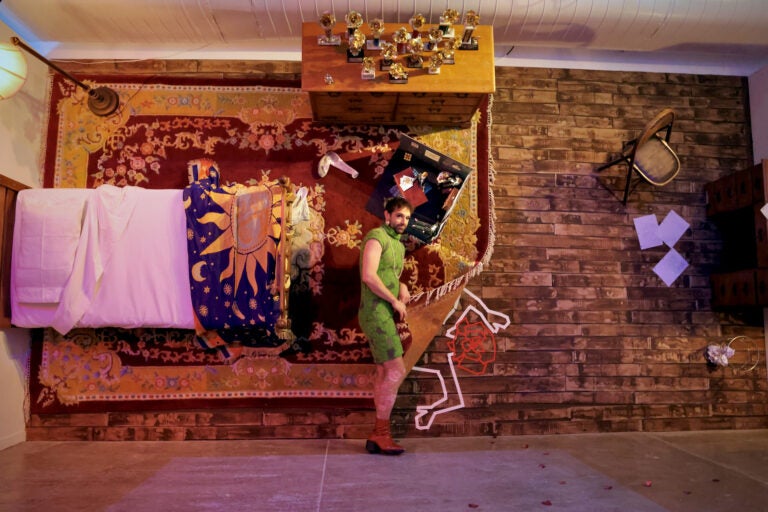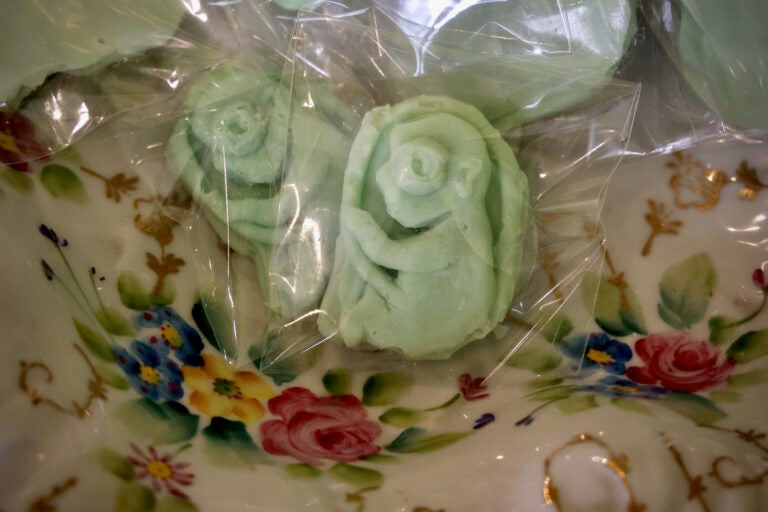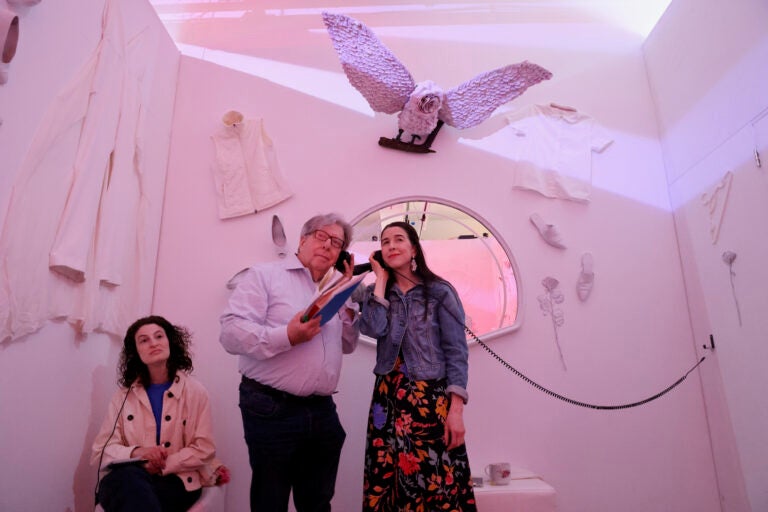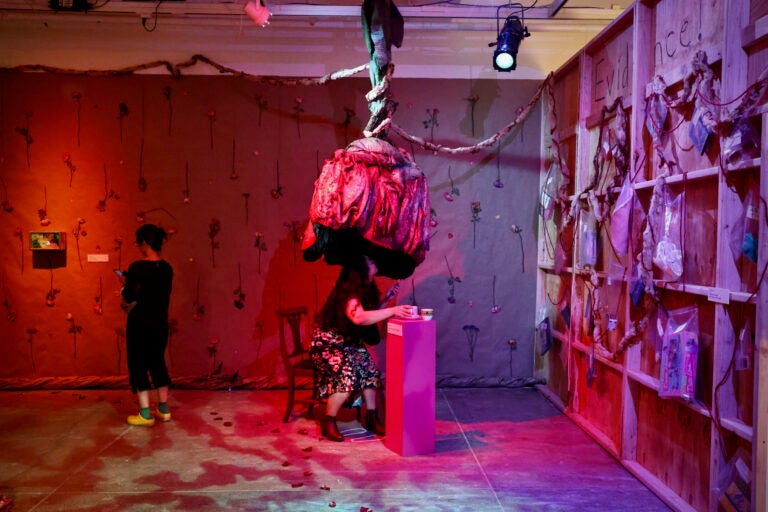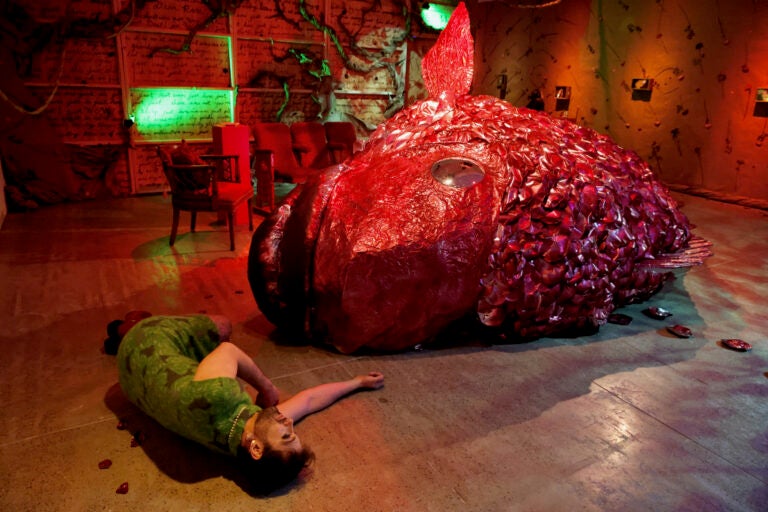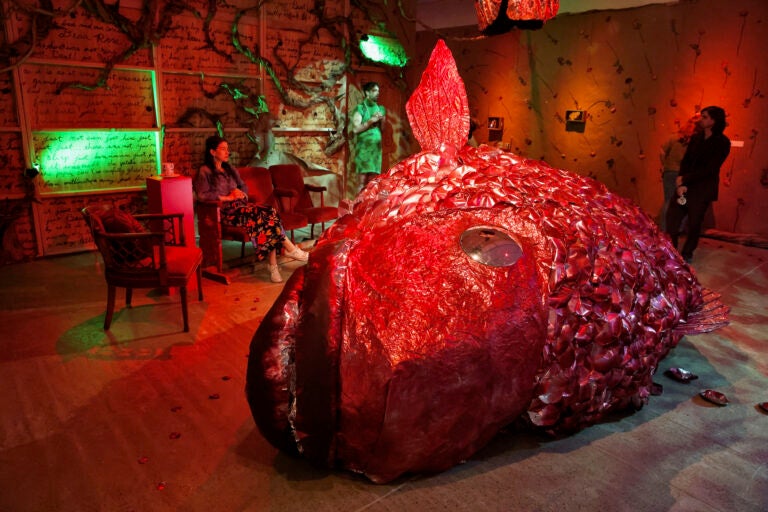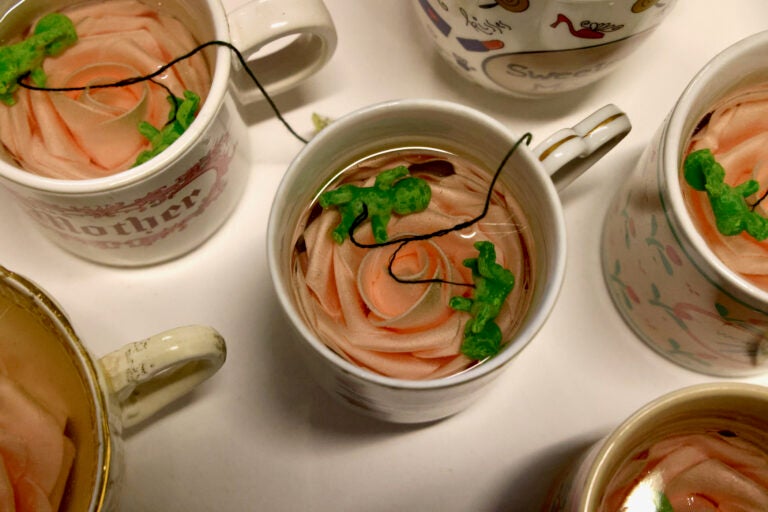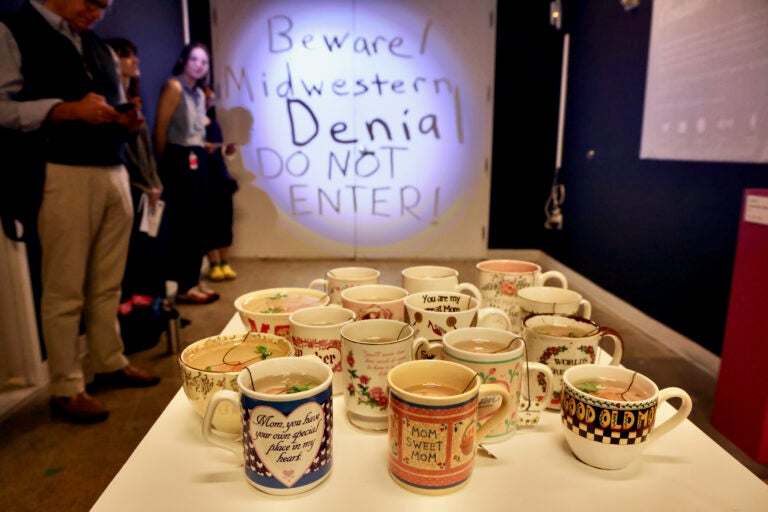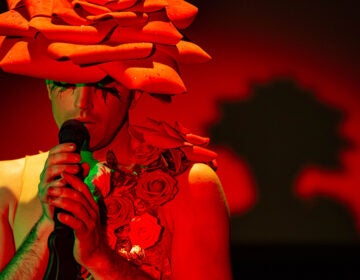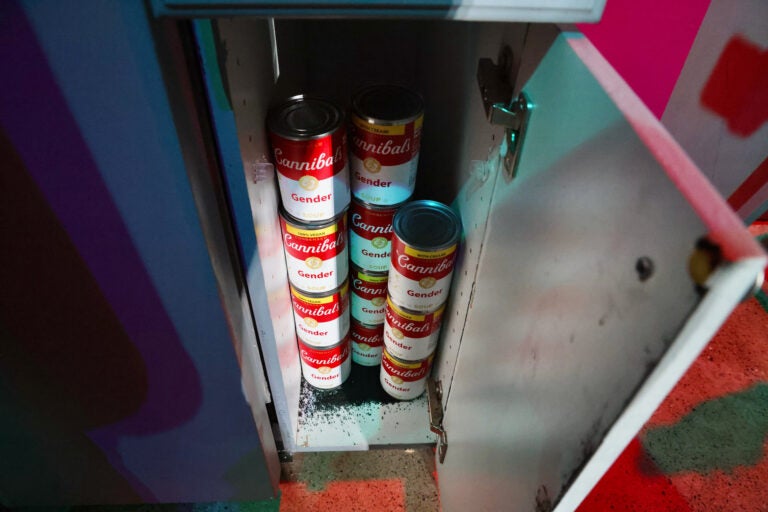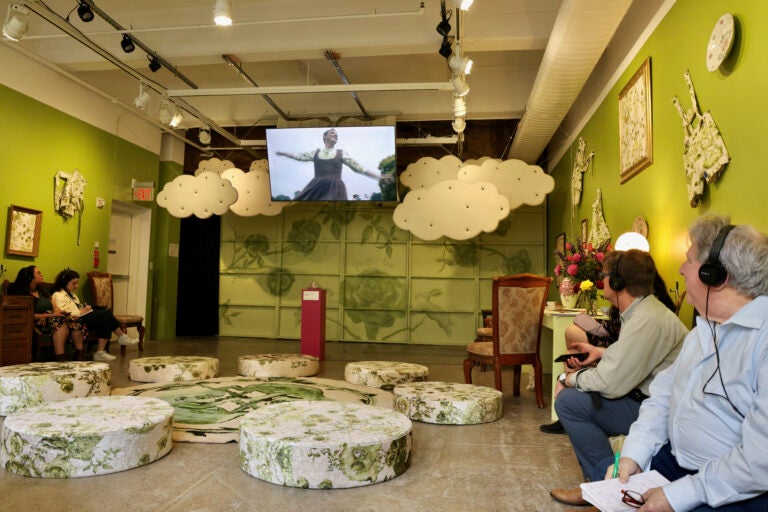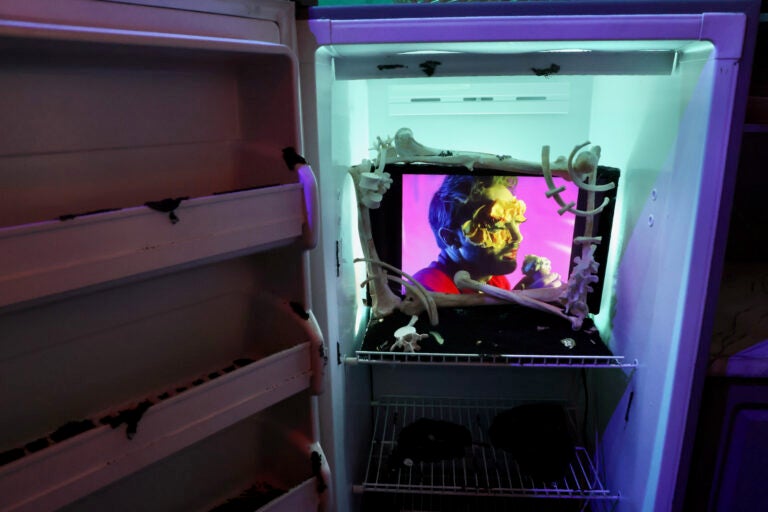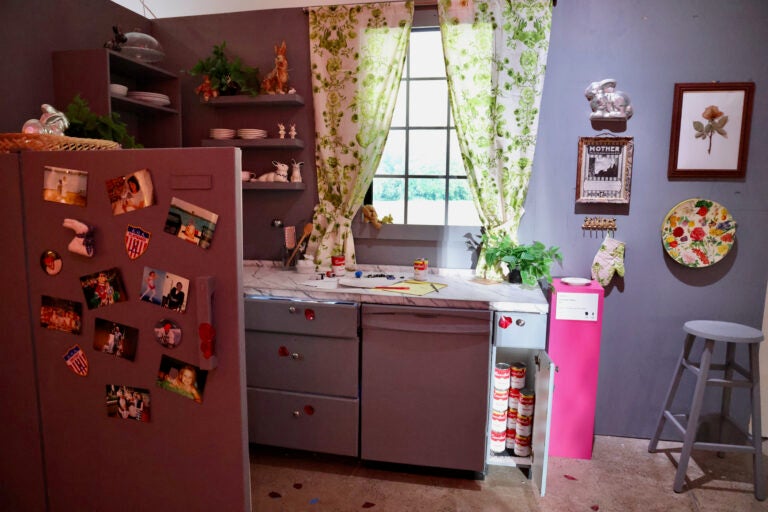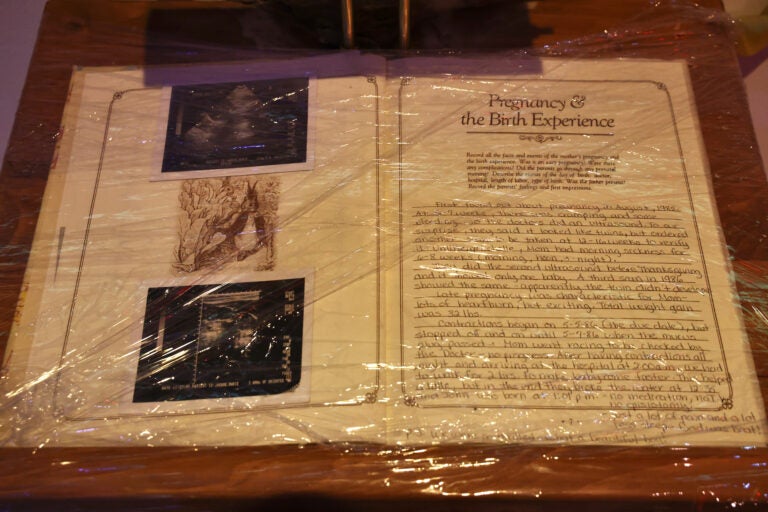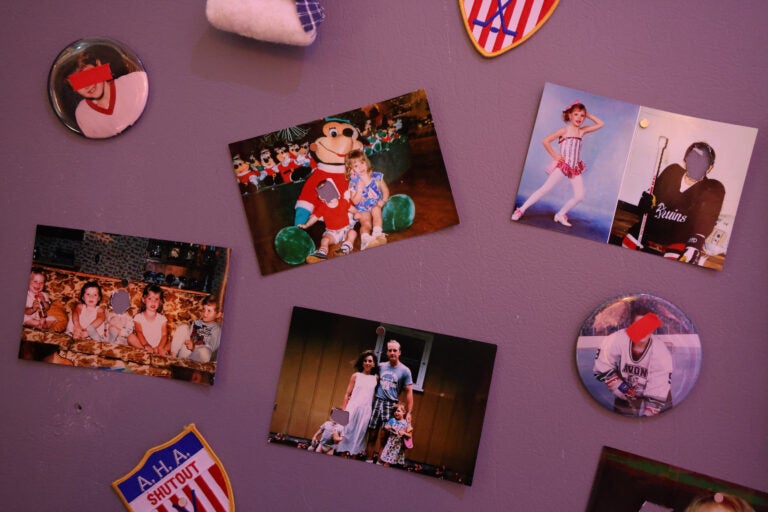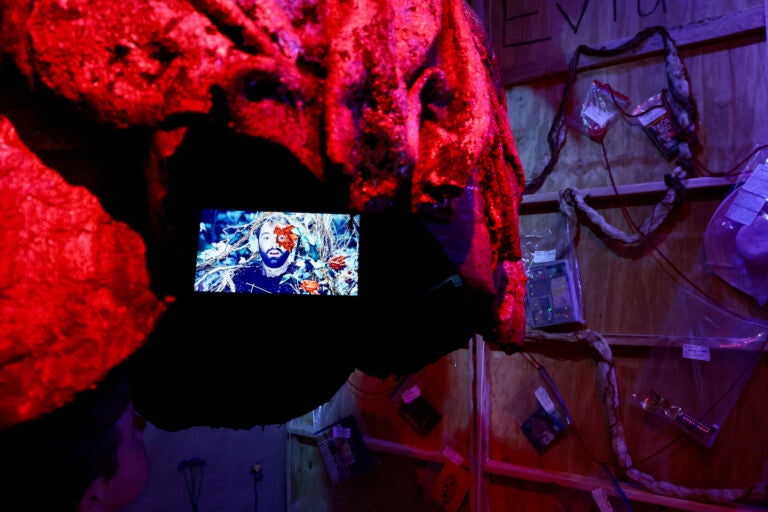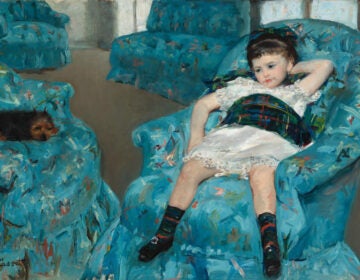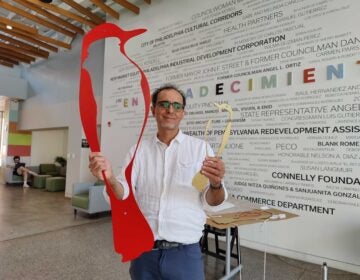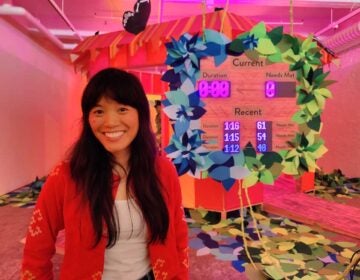A rose by another name: A fantasy about in-utero cannibalism comes to Philly’s Fabric Workshop
The immersive, interactive installation “Rose Garden” is a genderqueer fantasy of in-utero cannibalism.
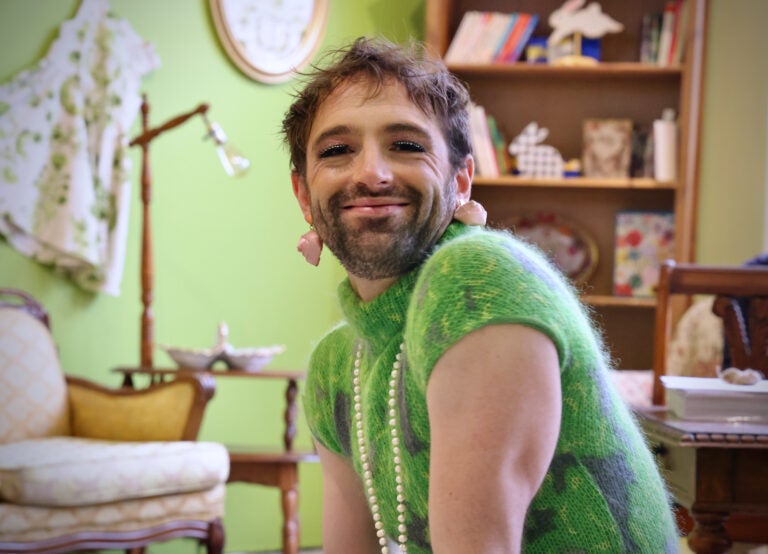
''The Rose Garden'' is John Jarboe's first solo museum exhibition. The immersive installation chronicles the artist's gender journey. (Emma Lee/WHYY)
From Philly and the Pa. suburbs to South Jersey and Delaware, what would you like WHYY News to cover? Let us know!
This is all true, except for the really weird parts. But those are true, too.
Several years ago, the Philadelphia cabaret creator John Jarboe was told, in a remarkably frank way, by an aunt, that she (Jarboe is genderqueer and identifies with she/her pronouns) had eaten her twin sister while still in the womb. And that, her aunt suggested, is why Jarboe is the way she is.
That is not quite true. Jarboe did have a twin in the early stages of her mother’s pregnancy, but did not eat her. The sister embryo never developed, and the uterus eventually absorbed its cells. It is not an uncommon phenomenon during pregnancy.
Had the sister been born she would likely have been named Rose, a name already picked out by Jarboe’s mother. The fantastic story of Rose, which Jarboe tells as both a living character and an alter ego, has been fodder for songs, videos, and live cabaret theater since 2019, most recently at the 2023 Fringe Festival.
Now, the tale has taken on the drag of a museum exhibition. “John Jarboe: The Rose Garden” is an immersive, interactive gallery installation at the Fabric Workshop and Museum.
With every iteration, Jarboe deepens and complicates the myth of a sister that never was.
“My dysphoria, or my trauma, led me into fantasy and to creating stories,” Jarboe said. “So if people ask, ‘Is this a true story?’ Yes. It’s true. Maybe some of it didn’t happen in a world that everyone lives in, but it happened.”
“The Rose Garden” traces Jarboe’s gender journey, beginning as a boy growing up in Michigan. The installation starts with a series of domestic rooms built inside the Fabric Workshop, representing a kitchen, a bedroom, a bathroom, and a dressing room.
These are the rooms where Jarboe began to experience dysphoria, a discomfort around her assigned gender at birth. In the kitchen, the refrigerator is bursting with soil. Video monitors hiding in the drawers and cabinets show Jarboe ravenously eating.
Her sister Rose is being both cannibalized and taking root.
In the bedroom, the furniture is suspended sideways on the wall, offering visitors a bizarre perspective of a midwestern boy’s room where the hockey trophies are adorned with roses instead of victorious figures. The rooms are seen from the eyes of a child who has invested every square inch of their home with imagination.
“When you’re starting on your journey, it’s the small things. It’s, like, ‘Why am I different in this space? Why is this a little askew?” Jarboe said. “As you get deeper into the gallery experience, it becomes more and more surreal.”
In translating “Rose” from stage to gallery, Jarboe grappled with how to engage the audience. She did not want to lose the urgency of live performance inside the more static space of the Fabric Workshop. So Jarboe borrowed from the structure of games: video games’ “Easter eggs” and the detective work needed in escape rooms.
Visitors are given a weighted teacup at the outset. Saucers are placed throughout the exhibition to accept the cup, triggering multi-media activations. Other than that, very little instruction is offered for navigating the space.
Curiosity is required. The more you dig, the more you find.
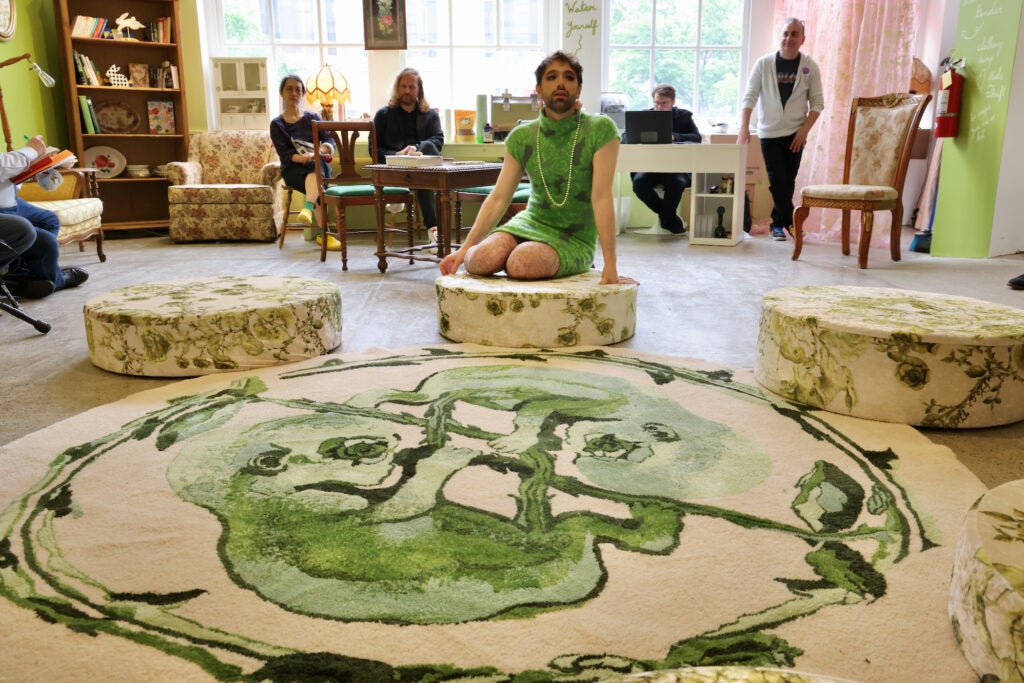
“That’s the real gift of queerness, being born with a question inside you that’s insistent,” Jarboe said. “You have to ask that question, or you will not survive, literally. That’s why I’m trying to activate the gallery: you have to do work. You have to ask a question. We have to keep tending our garden.”
One of the cultural touchstones of “Rose Garden” is Alfred Hitchcock’s 1960 thriller “Psycho,” about a homicidal young man who absorbs the persona of his dead mother. Jarboe re-enacts particular scenes from the film, including its final expository scene when a court psychiatrist explains Norman Bates’ psychosis and transvestism.
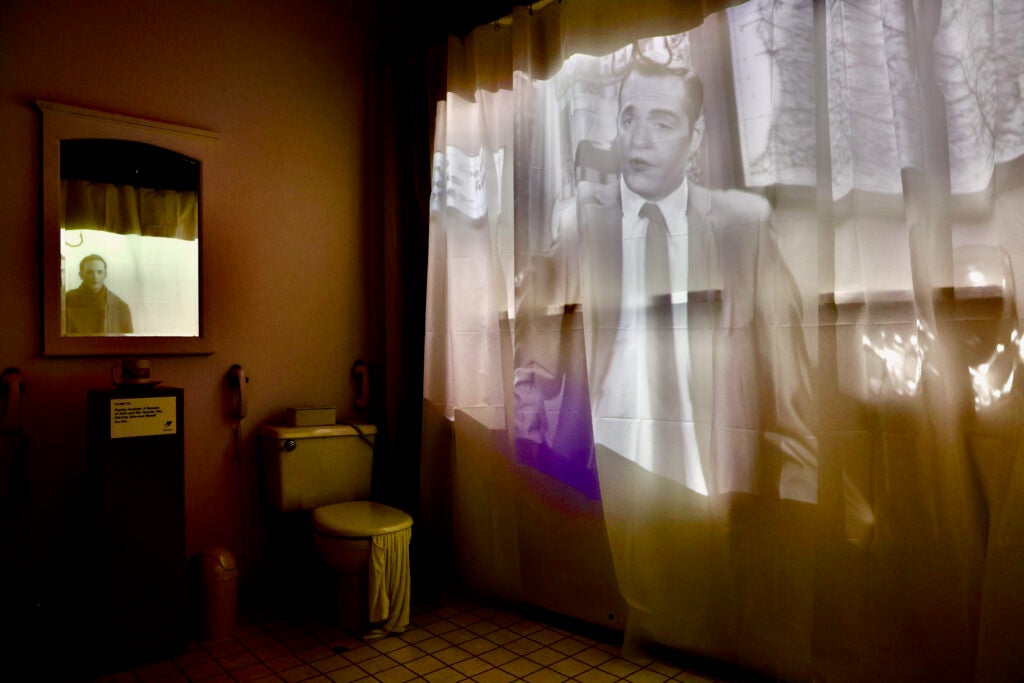
“Psycho” was the first major American film to use the word “transvestite,” which initially the Motion Picture Production Code had tried to censor. It is also one of Jarboe’s favorite films. In the mythology of “Rose,” Jarboe and her sister, as embryos, would have movie nights and project “Psycho” on the uterine wall.
Jarboe could not resist personifying Hitchcock’s coda as the psychiatrist who equates transvestism with psychosis. Her performance is projected on a shower curtain, a nod to Janet Leigh’s famous death scene, as the folds of the curtain warp Jarboe’s face in an otherwise straight performance.
“The film is from a very CIS-hetero lens trying to explain queerness,” Jarboe said. “I just love that.“
“When you’re young and queer and growing up in the Midwest, at least when I was growing up in the Midwest in the early 90s, you latch onto those images,” she said. “The only images you’re given of who you are are deeply problematic: James Bond villains, Psycho, Jeffrey Dahmer, these horrible images of queerness. That’s what you eat. Those are the scraps that you eat to become who you are.”
The gender journey in “Rose Garden” is dark, surreal, and sometimes brutal. In the bedroom, Jarboe is seen confiding to a fish in a bathtub about her gender confusion. In the next room, that fish grows gigantic, becoming the proverbial elephant in the room. The dressing room where Jarboe explores her mother’s clothes and makeup is fraught with anxiety. A small video monitor hiding inside an oversized rosebud depicts Jarboe as a rosebush buried up to her neck, describing the killing of a rabbit.
The final room is large, filled with light, cool green colors and soft furniture. A video shows Jarboe with a chorus of children dressed as the Von Trapp family from “The Sound of Music” singing together in Fairmount Park’s Belmont Plateau.
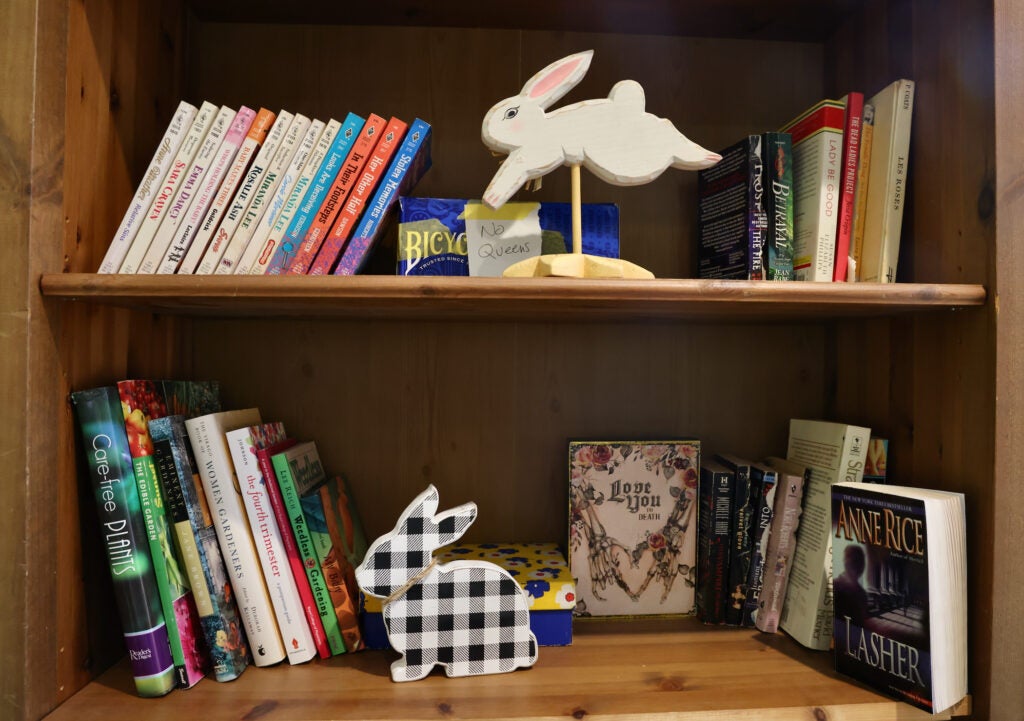
This is the morning after a long night’s journey.
“You’re in these dark, narrow spaces, and it takes a while to get to that moment where you can push and get out and be, like, ‘I am worthy. I am whole,’” Jarboe said. “I am a full, blooming rose.”
Jarboe can’t help but get choked up by her own story, but never breaks character.
“I’m leaking as I talk,” she said, wiping a tear. “I’m watering myself.”

Get daily updates from WHYY News!
WHYY is your source for fact-based, in-depth journalism and information. As a nonprofit organization, we rely on financial support from readers like you. Please give today.



